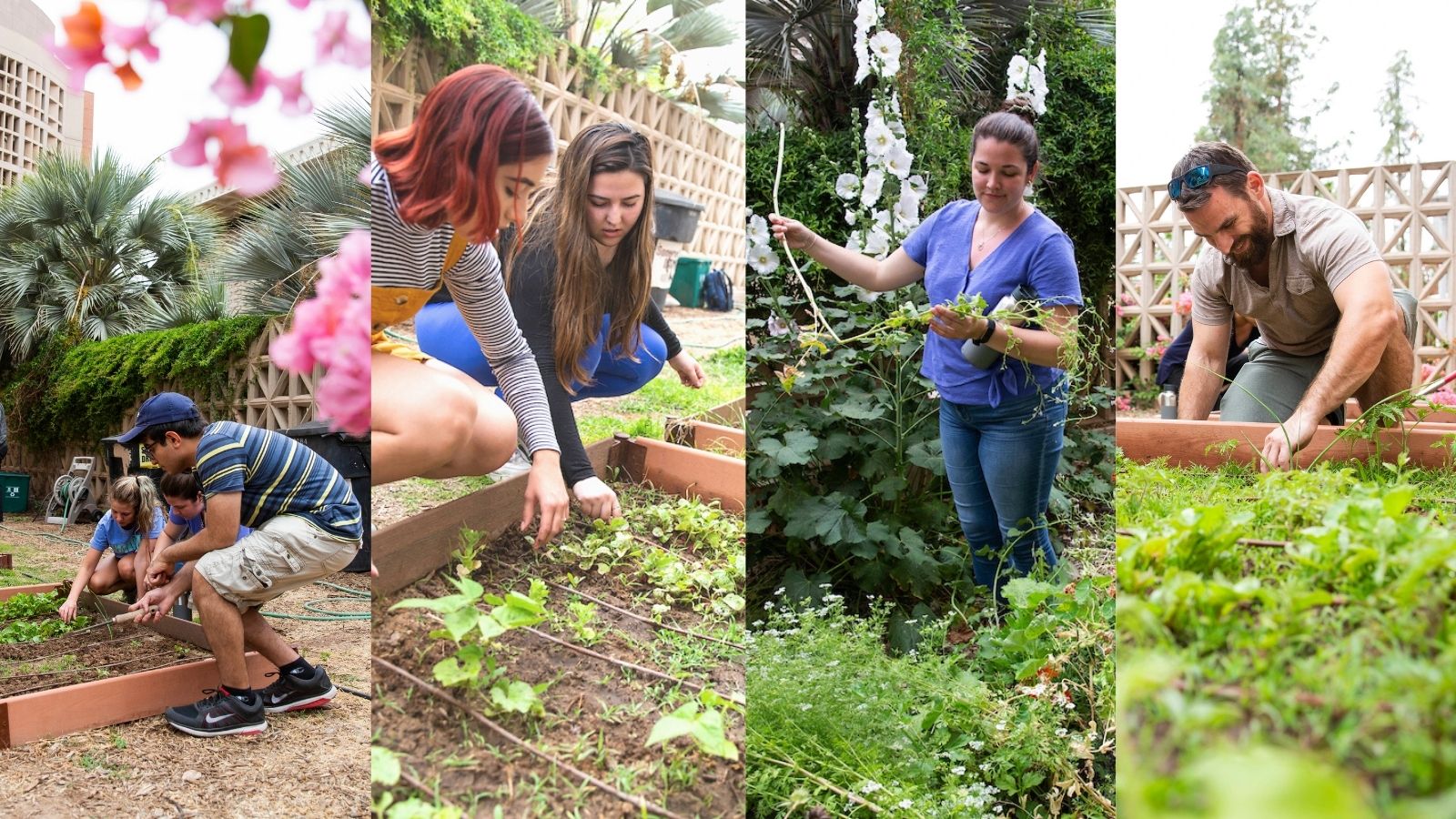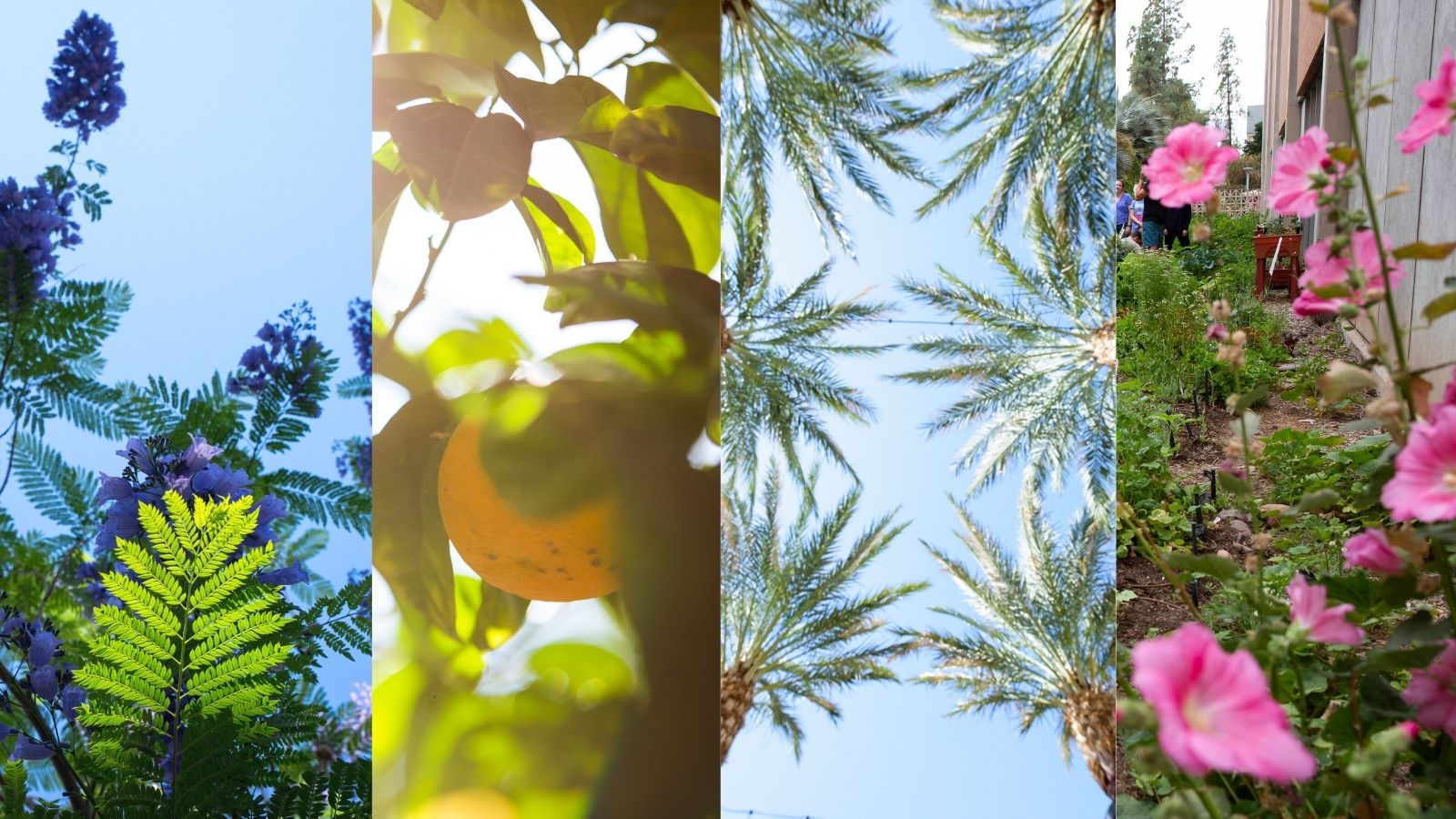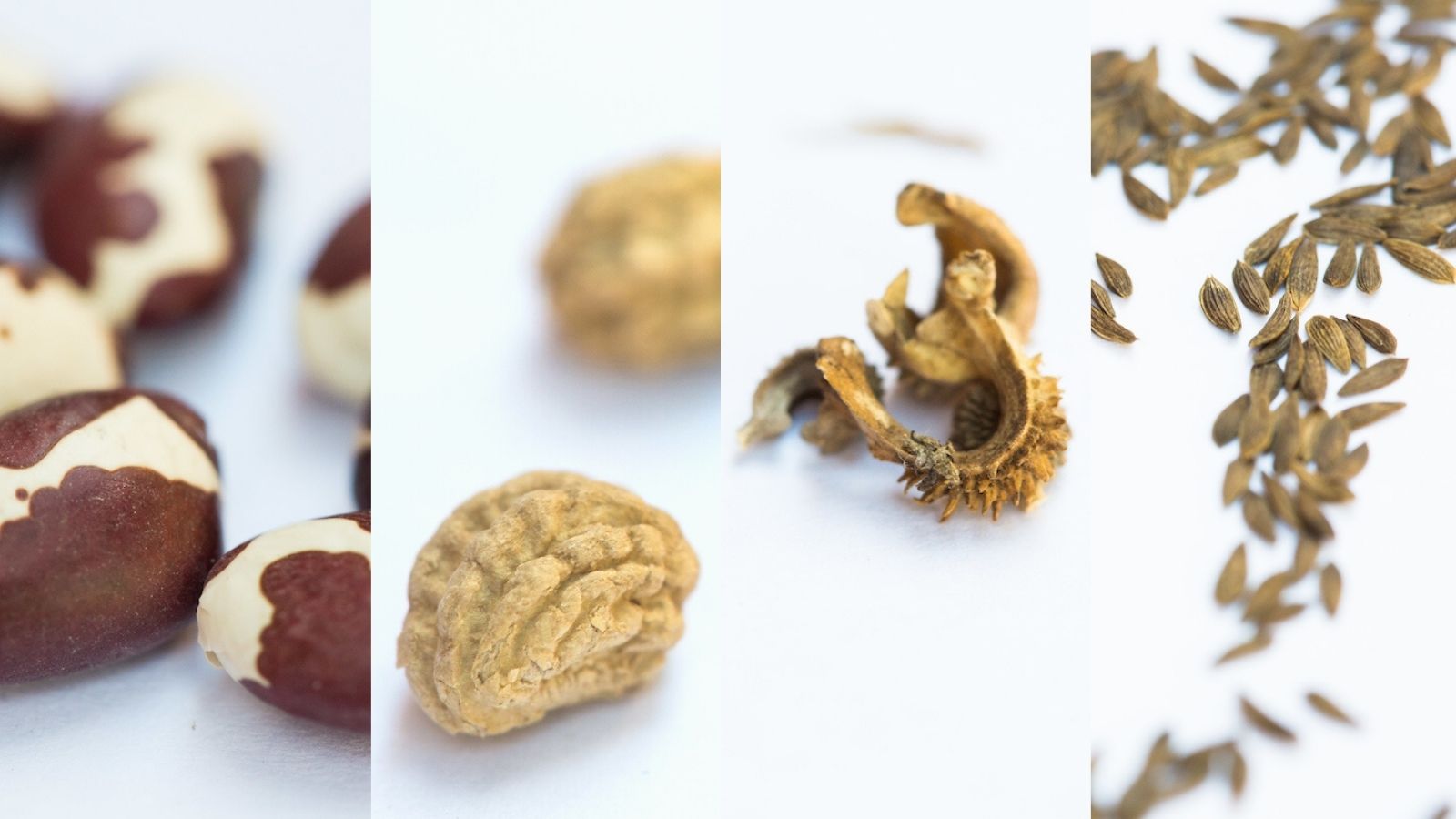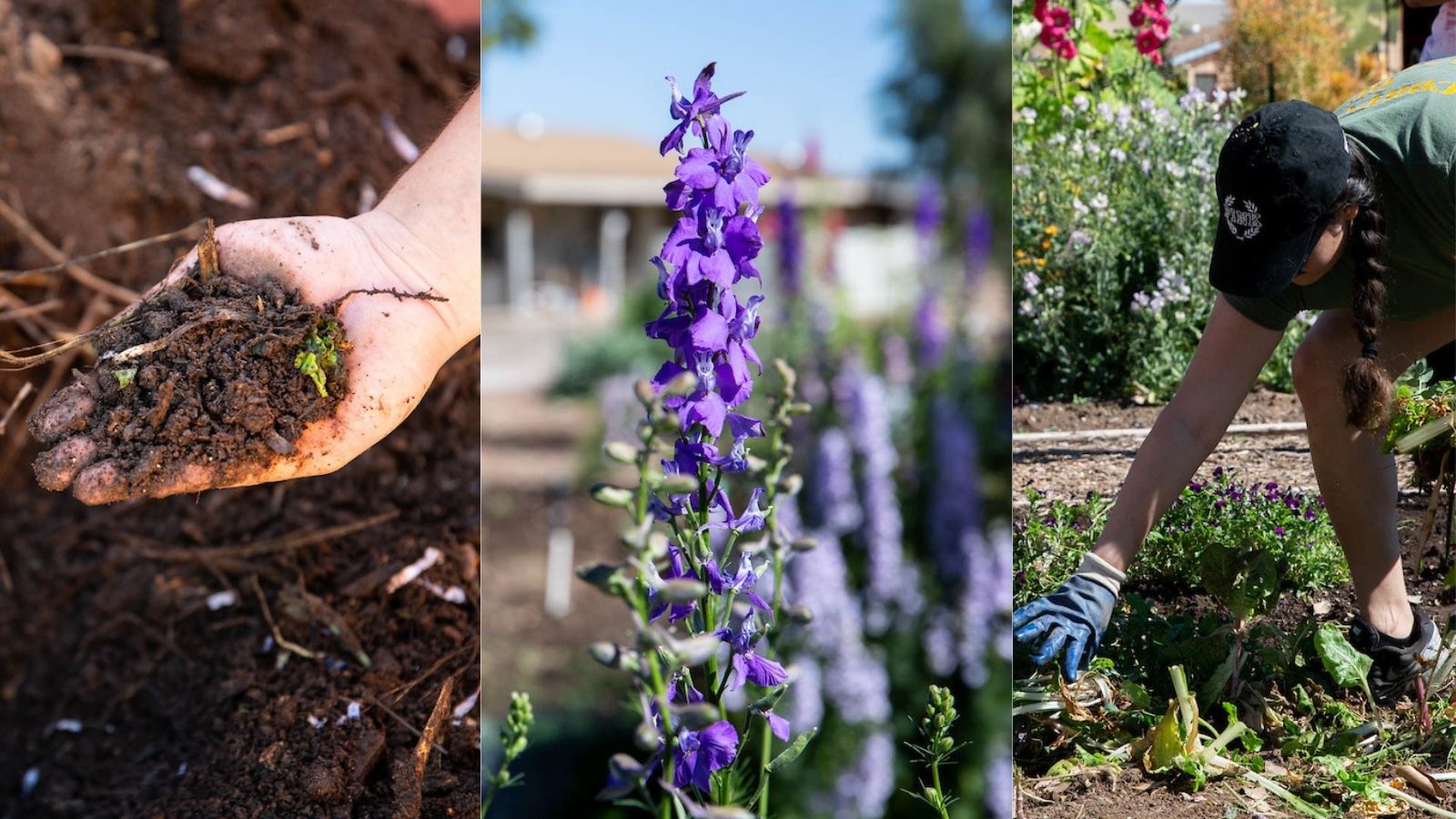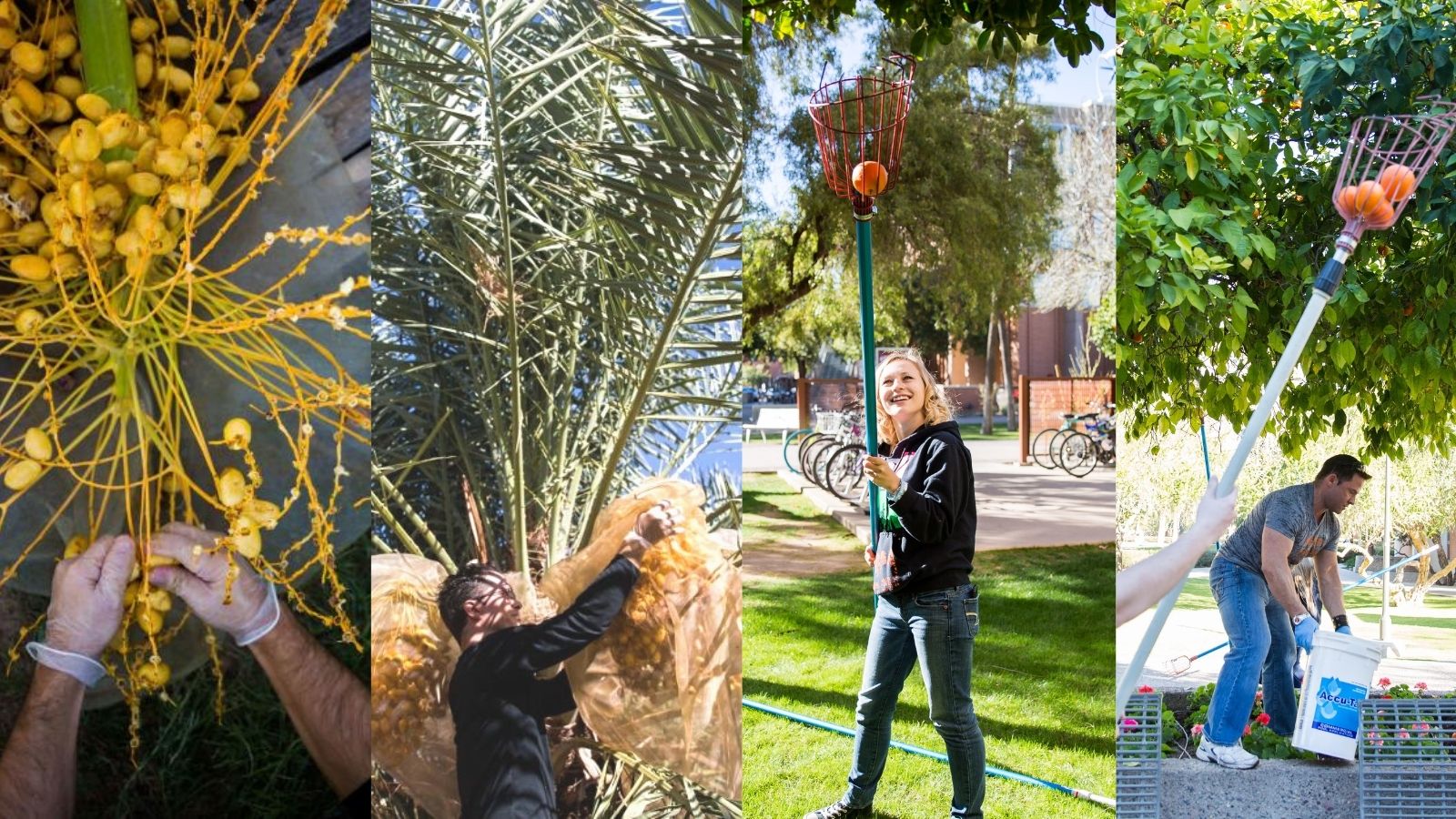With a hectic schedule of classes and activities, many students may want a few moments of connecting with nature at Arizona State University.
Luckily there are several ways for students to stick their hands in soil, pluck weeds and harvest fruit, herbs and vegetables.
Here are some of them:
Volunteer at a community garden
The Garden Commons on ASU’s Polytechnic campus features 18 raised beds whose harvests align with the seasons, but might include lettuce, kale, tomatoes, squash, peppers and herbs. The orchard has 22 citrus trees, including lemons, limes, mandarin oranges and navel oranges.
Susan Norton, program manager for university sustainability practices at Poly, runs the garden and suggests that nature-lovers check the garden’s social media accounts for opportunities to volunteer.
“It’s a little random because we found that when we try to schedule something, like every third Wednesday or whatever, the plants don’t always keep up with the third Wednesday,” she said.
“It was, ‘Well, it’s not time to harvest the carrots yet. They need another week.' Or something will die, and we need people now.”
The Garden Commons also will continue a program it started in the spring: garden ambassadors.
“With that, you commit a half an hour or an hour every week at a designated time, and we train you in an area of the garden and you work that area for six weeks,” Norton said.
Volunteers might be assigned to maintenance the citrus orchard or compost area, or general help such as harvesting and packing, weeding and working on irrigation.
“Students can learn a skill set in that six weeks and when they’re done, transition to a different area,” she said.
Produce is donated to the House of Refuge, a Mesa-based nonprofit that helps families who are experiencing homelessness, or a local food bank. Before the pandemic, produce was sold at a farm stand on campus.
Norton said she is considering having the garden and orchard become GAP-certified, for “good agricultural practices,” a USDA program that ensures food-safety compliance. That would allow the garden to donate produce to the dining halls.
Changemaker Central’s volunteer match lists several opportunities to help out in local community gardens, including the Japanese Friendship Garden, the cactus garden at Tovrea Castle, Clark Park Community Gardens, Escalante Community Gardens and Agritopia.
Take a class
Deborah Thirkill, program coordinator for arboretum ground services, teaches a one-credit gardening course offered in sessions A and B in the spring. The class is part of the coursework offered to physical education majors in the Mary Lou Fulton Teachers College, though anyone can take it.
“When they asked me to teach gardening, I thought, ‘What does that have to do with physical education?” she said.
“But it’s a skill you can learn and do for the rest of your life — you’re active, you’re outside and it’s a social activity.”
Students in the seven-week class plant seeds, harvest the results and learn about desert gardening.
“We grow different plants at different times, and I have them put in an irrigation system,” she said.
An iCourse called “Southwest Home Gardening,” ABS 360, is offered this fall.
Plant some seeds
Students who would like to try planting vegetables, herbs or wildflowers in their own space can take seeds from the Seed Library.
Located in the Design and Arts Library, the Seed Library allows prospective gardeners to take two packets of seeds at a time, according to Christina Sullivan, a library specialist who manages the Seed Library. And there are library guides that can help with planting.
“I’ve noticed that a lot of people like to take spinach and kale and, surprisingly, the chard,” she said.
“I’m trying to grow a native pepper right now.”
For more information on growing your own vegetables, check out this video on backyard gardening by Maria Coca, manager of the Academic Senate at ASU and a master gardener.
The staff would love for successful gardeners to harvest their seeds to donate back to the Seed Library, Sullivan said.
Join a club
Thirkill is the adviser to the Gardens @ ASU student club, which tends its own plot on campus.
“They invite speakers and like to give a fall tour of the arboretum, and what’s edible on campus,” she said.
“They learn how to make full use of the garden, and they use the space for all kinds of things, like painting and yoga.”
Other organizations include the Barrett Sustainability Club, which manages the rooftop organic garden at Sage South on the Tempe campus, and Food for Change, which is working to create more edible gardens.
Harvest, prune and compost
Students can help with two main harvests on campus — dates in September through November and oranges in January through March. ASU has the largest collection of date palms in any public garden in the U.S. A few years ago, the university replaced 110 palm trees lining the iconic Palm Walk on the Tempe campus with date palms, which provide more shade plus Medjool dates. On the Polytechnic campus, the date palm “germplasm,” or grove used for scientific research, has more than 40 rare varieties.
On the Tempe campus, more than 200 Seville orange trees produce several tons of fruit that is harvested.
Student volunteers also are needed to spread organic compost around the trees on campus, as well as pruning the rosebushes at the Music Building — no experience needed.
“We’ll teach them how to deadhead and weed the roses. It’s a lot of fun and very beautiful,” Thirkill said.
The herb garden, near the bus stop at the Student Services Building, also needs help.
“There’s rosemary and oregano, and when we cut back the mint for composting, the fragrance is so relaxing.”
Volunteer opportunities are posted through Changemaker Central.
Sit and chill
Not interested in getting your hands dirty? The entire Tempe campus has been designated an arboretum, and there are dozens of spots to sit next to nature without having to touch it. This video gives a good tour of garden spots on campus, including the Secret Garden.
All images by Deanna Dent/ASU
More Environment and sustainability
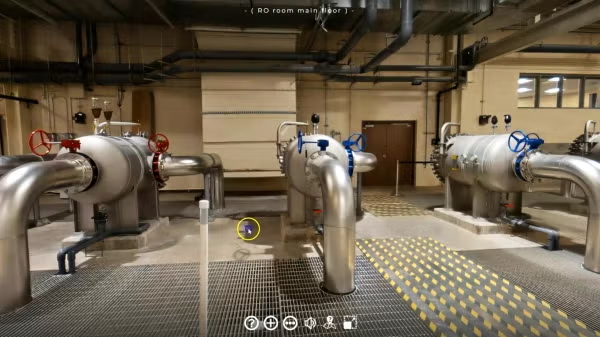
Public education project brings new water recycling process to life
A new virtual reality project developed by an interdisciplinary team at Arizona State University has earned the 2025 WateReuse Award for Excellence in Outreach and Education. The national …

ASU team creates decision-making framework to improve conservation efficiency
Conserving the world’s ecosystems is a hard job — especially in times of climate change, large-scale landscape destruction and the sixth mass extinction. The job’s not made any easier by the fact…

Mapping the way to harvesting water from air
Earth’s atmosphere contains about 13 trillion tons of water.That’s a lot of water to draw upon to help people who are contending with drought, overtaxed rivers and shrinking aquifers.In fact,…



